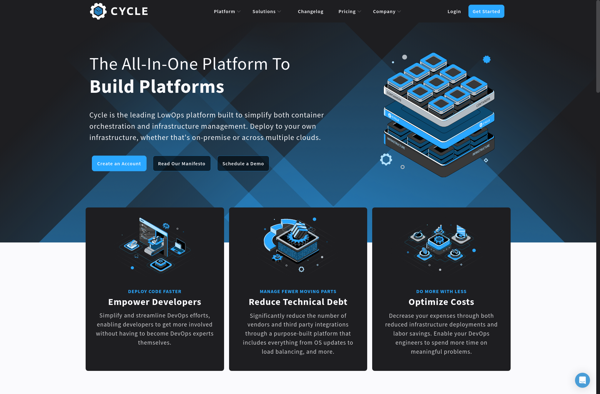Deis
Deis is an open source platform as a service (PaaS) that allows users to easily deploy, manage, and scale applications on top of Kubernetes. It provides developers with a Heroku-like workflow to deploy apps.
Deis: Open Source PaaS for Kubernetes Deployment
A platform as a service (PaaS) offering an easy-to-use Heroku-like workflow for deploying applications on top of Kubernetes, supporting open source development.
What is Deis?
Deis is an open source platform as a service (PaaS) built on top of Kubernetes that allows developers to easily deploy, manage, and scale applications. Some key features of Deis include:
- Simple Git push deployments - Developers can deploy apps simply by pushing code to a Git repository.
- Buildpacks - Apps are built using Heroku buildpacks, allowing support for languages like Node, Python, Java, Ruby, Go etc.
- Add-on system - Additional services like databases can be provisioned as add-ons.
- Simple horizontal app scaling - Apps can be easily scaled out with a single command.
- Rollback support - Ability to instantly rollback to previous app versions.
- Admin dashboard - Dashboard for managing apps, configuring add-ons, managing team members etc.
- Role based access control - Granular access control to manage team permissions.
- Open source - Actively maintained open source project with MIT license.
Overall, Deis aims to provide Heroku-like convenience for deploying and running apps on Kubernetes, with access to all the power and benefits of Kubernetes.
Deis Features
Features
- Kubernetes-native architecture
- Simple CLI and workflow
- Role-based access control
- Built-in autoscaling
- Blue/green deployments
- Customizable logging and metrics
Pricing
- Open Source
Pros
Easy to get started
Great documentation
Active open source community
Scales well with Kubernetes
Supports a wide range of languages and frameworks
Cons
Less features than some proprietary PaaS offerings
Can be complex to operate at scale
Requires Kubernetes expertise
Not as beginner friendly as Heroku
Official Links
Reviews & Ratings
Login to ReviewThe Best Deis Alternatives
Top Development and Container Platform and other similar apps like Deis
Here are some alternatives to Deis:
Suggest an alternative ❐Kubernetes
Kubernetes is an open-source system for automating deployment, scaling, and management of containerized applications. It groups containers that make up an application into logical units for easy management and discovery. Kubernetes provides a framework to run distributed systems resiliently across clusters of machines, hide the complexity of managing many different...
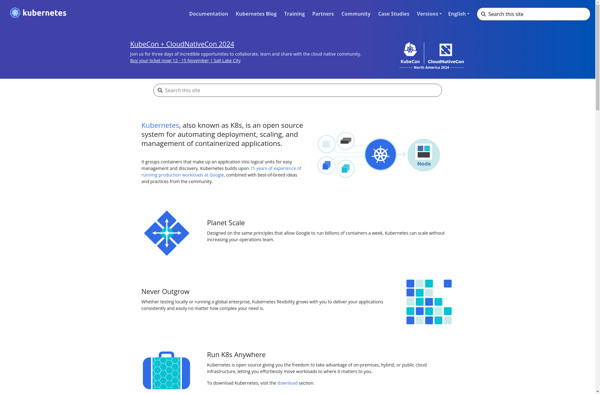
Rancher
Rancher is an open-source container management platform designed to help developers and DevOps teams deploy, manage, and secure containerized applications across multiple infrastructure providers. Key features of Rancher include:Intuitive GUI for managing Kubernetes clusters across public and private clouds, as well as bare metal serversSupport for leading Kubernetes distributions including...
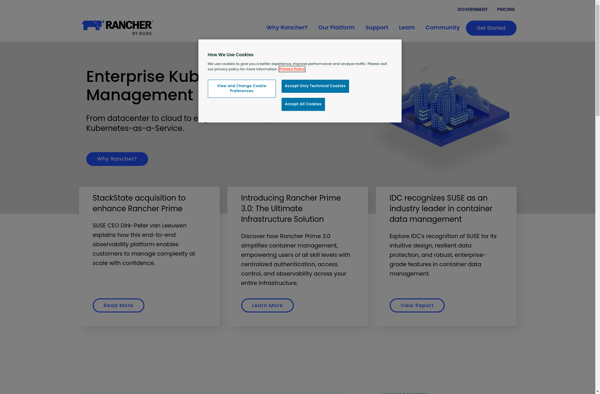
Parallels Desktop
Parallels Desktop is a popular virtualization solution specifically designed for macOS, enabling users to run multiple operating systems on their Mac computers. It is known for its user-friendly interface, performance optimizations, and seamless integration of virtual machines with the macOS environment. Key Features: Cross-Platform Virtualization: Parallels Desktop supports a wide...
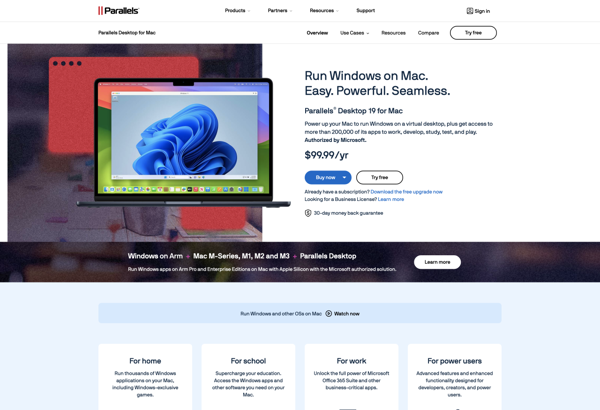
Docker
Docker is an open platform for developing, shipping, and running applications inside software containers. It provides an additional layer of abstraction and automation of operating-system-level virtualization on Linux, Mac OS and Windows.Docker packages software into standardized units called containers that have everything the software needs to run including libraries, system...
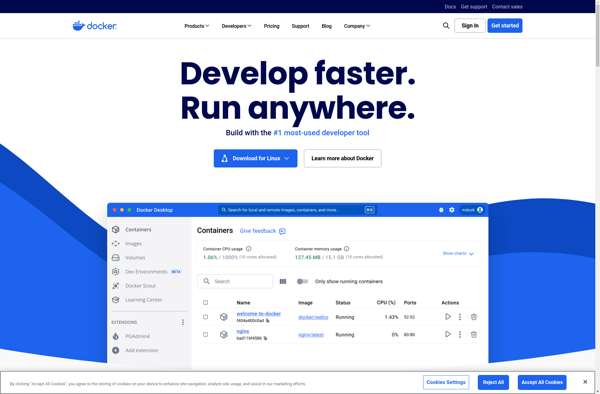
Flatpak
Flatpak is a utility for software deployment and package management on Linux. It provides a framework for building, distributing, installing and running applications in isolated environments called sandboxes.Some key features of Flatpak include:Sandboxing - Each Flatpak app runs in its own sandbox, isolated from the rest of the system. This...
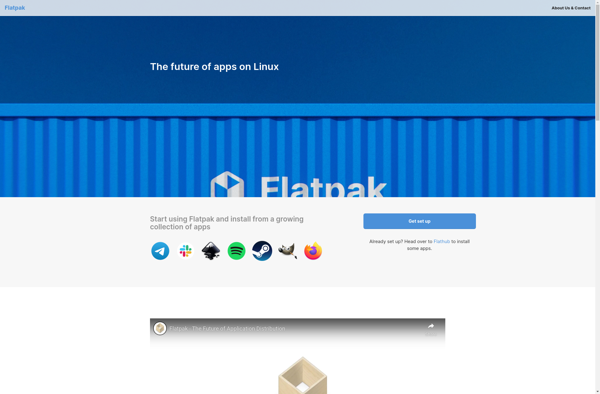
Virt-manager
virt-manager is an open-source graphical application for managing virtual machines using the libvirt toolkit and related technologies. It provides a simple way to view, control, and manage guest virtual machines running on the KVM and Xen hypervisors as well as other libvirt-supported technologies such as LXC, QEMU, and VirtualBox.Some key...
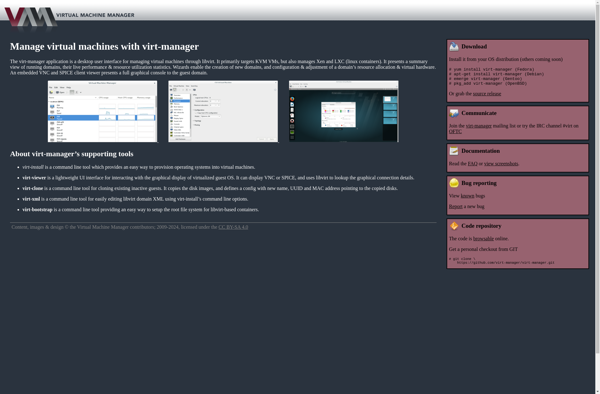
Microsoft Hyper-V Server
Microsoft Hyper-V Server is a free, standalone product from Microsoft that provides a hypervisor-based virtualization platform for running virtual machines on x64 Windows servers. It has a small footprint and requires limited system resources while providing a simple and reliable virtualization solution.As a hypervisor, Hyper-V creates and runs virtual machines...
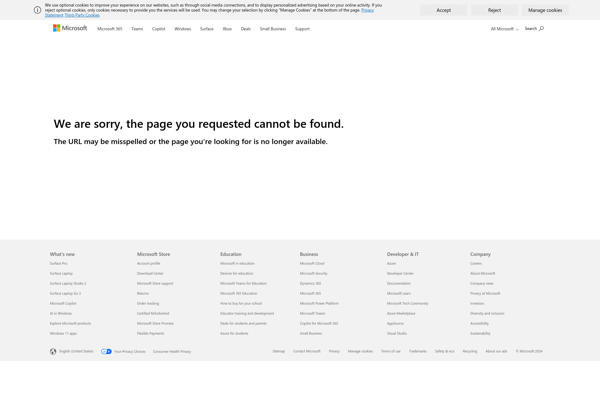
Rancher Desktop
Rancher Desktop is an open source Kubernetes distribution designed to run on desktop operating systems like macOS, Windows and Linux. It enables developers to easily deploy fully-featured Kubernetes clusters on their local workstations for testing, development and learning purposes.Some key features of Rancher Desktop include:Single downloadable binary that sets up...
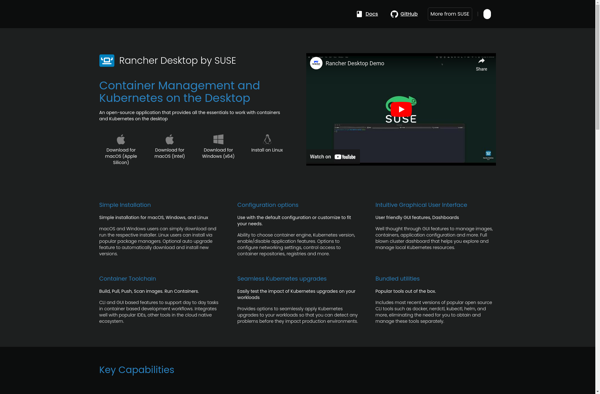
Apache Mesos
Apache Mesos is an open source cluster manager that provides efficient resource isolation and sharing across distributed applications or frameworks. It sits between the application layer and the operating system on a distributed system, and makes it easier to deploy and manage applications in large-scale clustered environments.Some key features of...
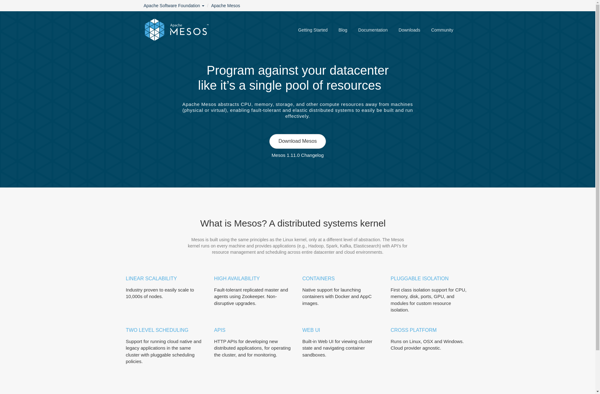
Dokku
Dokku is an open source Platform-as-a-Service (PaaS) that allows developers to easily deploy, manage, and scale applications on a single server. It is designed to be lightweight, simple to install, and uses Docker and Git workflows under the hood.Some key features of Dokku include:Git push deployments - Developers can deploy...
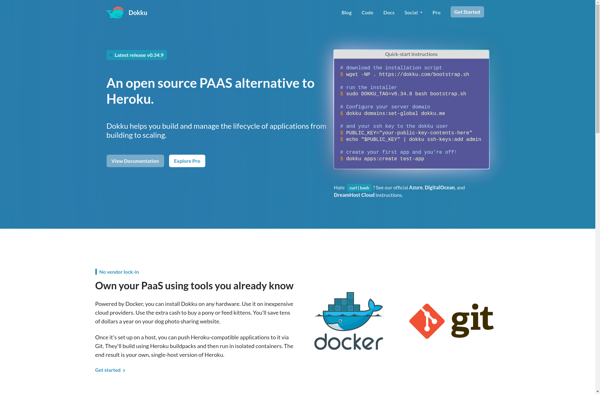
Containerd
containerd is an open source container runtime that is designed to manage the complete container lifecycle for its host system or server. This includes pulling container images, managing storage and network resources, executing containers, monitoring them, and more.Some key things to know about containerd:It is lightweight, portable and runs on...
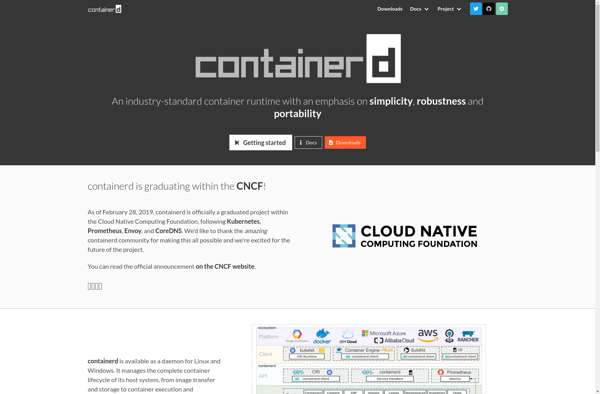
Cycle.io
Cycle.io is a flexible, web-based project management software designed for agile development teams. It provides a variety of tools to help plan, organize, track and manage software projects of all sizes.Key features of Cycle.io include:Customizable boards to visualize workflows and track progressStory maps, epics, user stories, tasks, bugs, and custom...
